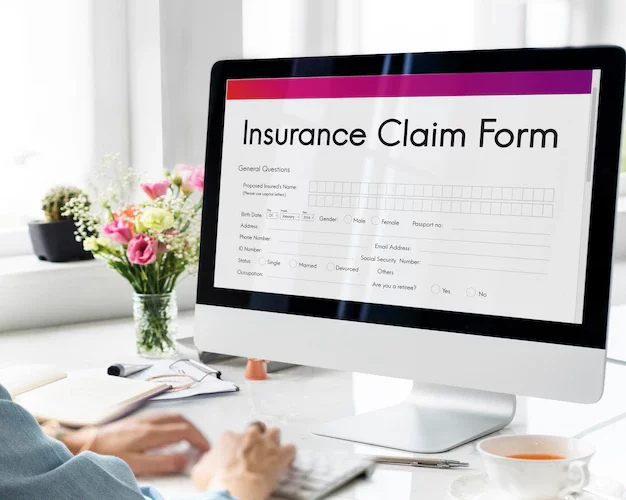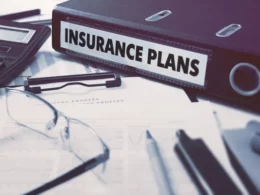If you have been in a car accident, you might be wondering whether you should file an insurance claim or not. Filing an insurance claim can help cover the damages and expenses, but it can also increase your insurance premiums. On the other hand, not filing a claim can save you money, but it may also affect your insurance rates in the future.
So does an accident without claim affect your insurance? Let’s take a deep dive to explore the answer.
How Does an Accident Without Claim Affect Insurance?
If you have been involved in an accident but decided not to file a claim with your insurance company, you may be wondering how it will affect your insurance rates and policy renewal. Here’s what you need to know:
Insurance Rates
Even if you don’t file a claim, your insurance rates may still be affected by the accident. Insurance companies use a variety of factors to determine your rates, and an accident without a claim may still be taken into account. According to Car and Driver, “some insurers may consider accidents that you didn’t report to them when determining your rates.”
The impact on your rates will depend on the severity of the accident and your insurance company’s policies. If the accident was minor and you have a good driving record, your rates may not be affected at all. However, if the accident was more serious or if you have a history of accidents, your rates may go up.
Policy Renewal
When it’s time to renew your policy, the accident may also come into play. Insurance companies will review your driving record and claims history when deciding whether to renew your policy and at what rate. Even if you didn’t file a claim, the accident may still be listed on your driving record and could affect your renewal.
If the accident was minor and you have a good driving record, your policy may be renewed without any issues. However, if the accident was more serious or if you have a history of accidents, your insurance company may decide not to renew your policy or to renew it at a higher rate.
It’s important to note that insurance companies have access to a variety of databases and records, so even if you don’t report an accident to them, they may still find out about it. It’s always best to be upfront with your insurance company and report any accidents, even if you don’t plan to file a claim.
In conclusion, an accident without a claim can still affect your insurance rates and policy renewal. The severity of the accident, your driving record, and your insurance company’s policies will all play a role in how it’s handled. It’s important to be honest with your insurance company and report any accidents, even if you don’t plan to file a claim.
What Happens If You Don’t Report an Accident to Your Insurance?
If you’re involved in a car accident, it’s important to report it to your insurance company as soon as possible. Failing to do so can have serious consequences, including voided coverage and legal consequences.
Voided Coverage
If you don’t report an accident to your insurance company, you run the risk of having your coverage voided. This means that your insurance company may refuse to pay for any damages or injuries that result from the accident.
Even if you weren’t at fault for the accident, failing to report it to your insurance company could still result in voided coverage. Insurance companies require prompt reporting of accidents in order to properly investigate and assess the situation.
Legal Consequences
In addition to voided coverage, failing to report an accident to your insurance company can also have legal consequences. Depending on the jurisdiction, you may be required by law to report any accidents to your insurance company.
If you fail to do so, you could be fined or face other legal penalties. In some cases, you could even face criminal charges for leaving the scene of an accident or failing to report it to your insurance company.
It’s important to remember that reporting an accident to your insurance company doesn’t necessarily mean that you have to file a claim. You can simply report the accident for documentation purposes, even if you don’t plan on filing a claim.
In conclusion, failing to report an accident to your insurance company can have serious consequences. It’s always best to err on the side of caution and report any accidents as soon as possible, even if you don’t plan on filing a claim.
How to Handle an Accident Without Filing a Claim
If you get into a car accident, you might be hesitant to file a claim with your insurance company. Filing a claim can lead to an increase in your premium rates, and in some cases, it might not be worth it if the damage to your car is minor. Here are some tips on how to handle an accident without filing a claim.
Negotiating with the Other Driver
If the other driver caused the accident, you can negotiate with them to pay for the damages. Here are some steps to follow when negotiating:
- Exchange contact information with the other driver, including their name, phone number, and insurance information.
- Take photos of the damage to both cars.
- Get an estimate for the cost of repairs from a reputable repair shop.
- Contact the other driver and provide them with the estimate.
- Negotiate a payment plan with the other driver that works for both of you.
It’s important to keep in mind that negotiating with the other driver can be risky. If the other driver fails to pay, you might have to take legal action to recover the damages.
Paying Out of Pocket
If you caused the accident, you can pay for the damages out of pocket. Here are some steps to follow when paying out of pocket:
- Get an estimate for the cost of repairs from a reputable repair shop.
- Decide if you want to pay for the repairs yourself or negotiate a payment plan with the other driver.
- If you decide to pay for the repairs yourself, make sure you have enough money to cover the cost.
- Keep all receipts and documentation related to the accident and repairs.
Paying out of pocket can be a good option if the damage to your car is minor and the cost of repairs is less than your deductible. However, if the damage is significant, it might be better to file a claim with your insurance company.
Remember, if you choose to handle an accident without filing a claim, it’s important to take the necessary steps to protect yourself and your interests. Always exchange contact information with the other driver, take photos of the damage, and get an estimate for the cost of repairs.
Conclusion
In conclusion, it’s important to understand that even if you don’t make a claim after an accident, it could still affect your insurance premium. This is especially true if you were at fault for the accident. Insurance companies use your driving record to determine your risk level and set your rates accordingly.
If you were involved in an accident that was not your fault, you may be able to avoid a rate increase by not making a claim. However, it’s important to note that your insurance company may still find out about the accident and factor it into their risk assessment.
On the other hand, if you were at fault for the accident, making a claim will almost always lead to an increase in your insurance premium. The exact amount of the increase will depend on the severity of the accident and your insurance provider’s policies.
It’s also worth noting that some insurance companies offer accident forgiveness programs, which can help you avoid a rate increase after certain types of accidents. However, these programs may come with certain restrictions and limitations, so it’s important to read the fine print before signing up.
Overall, the best way to avoid an increase in your insurance premium after an accident is to drive safely and avoid accidents altogether. If you do find yourself in an accident, consider all your options carefully before making a claim, and be sure to shop around for the best rates and coverage.
YOU SHOULD ALSO READ:












